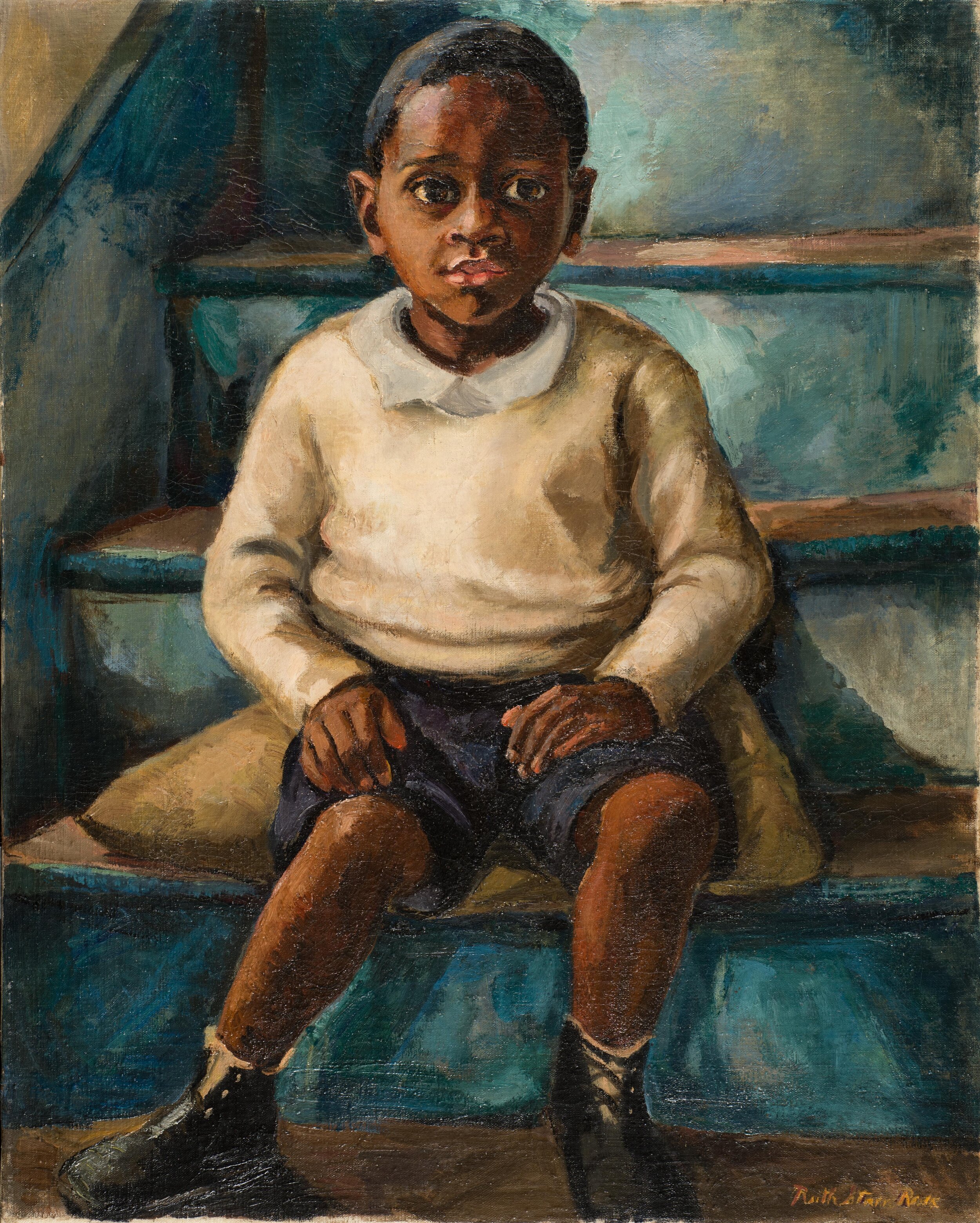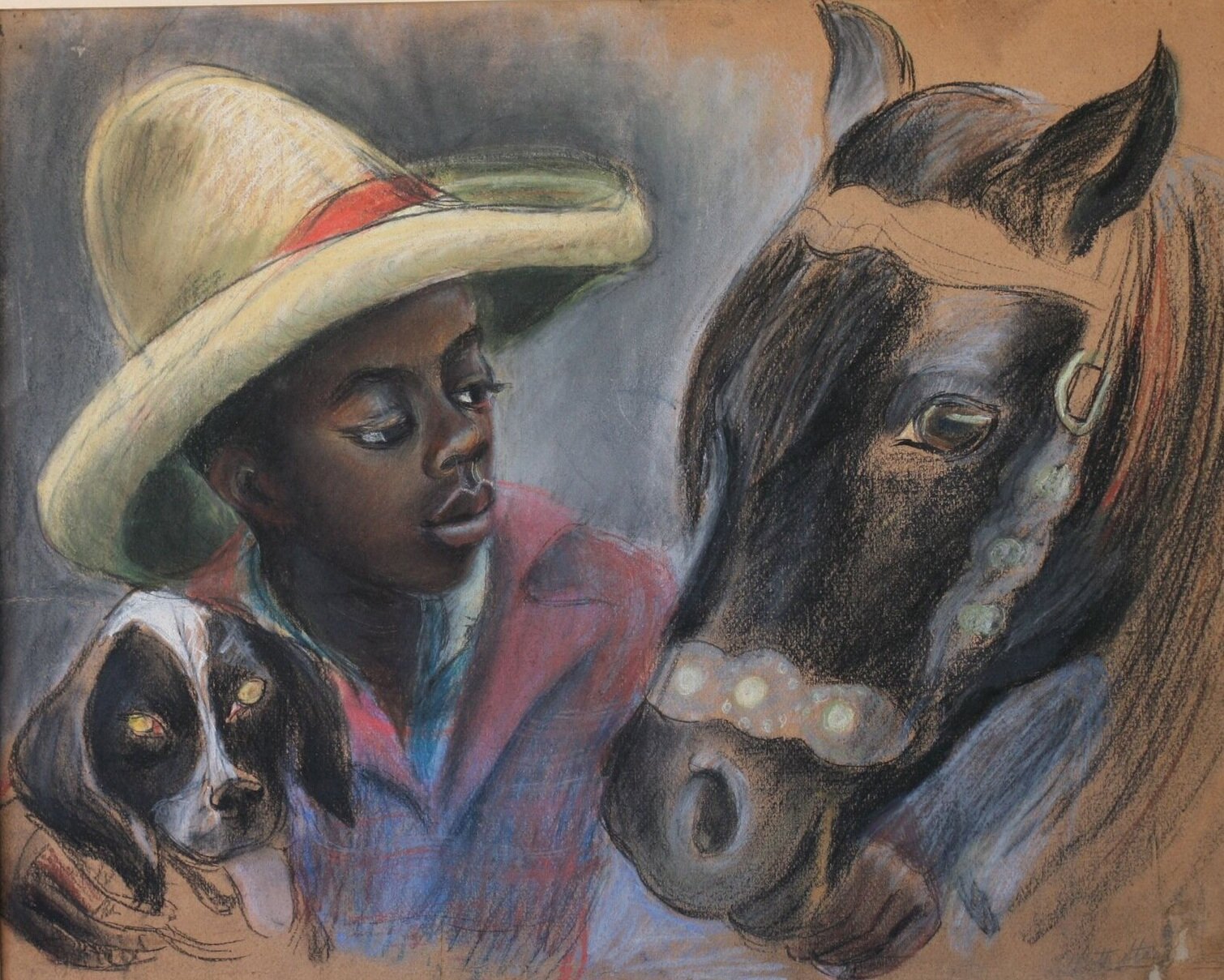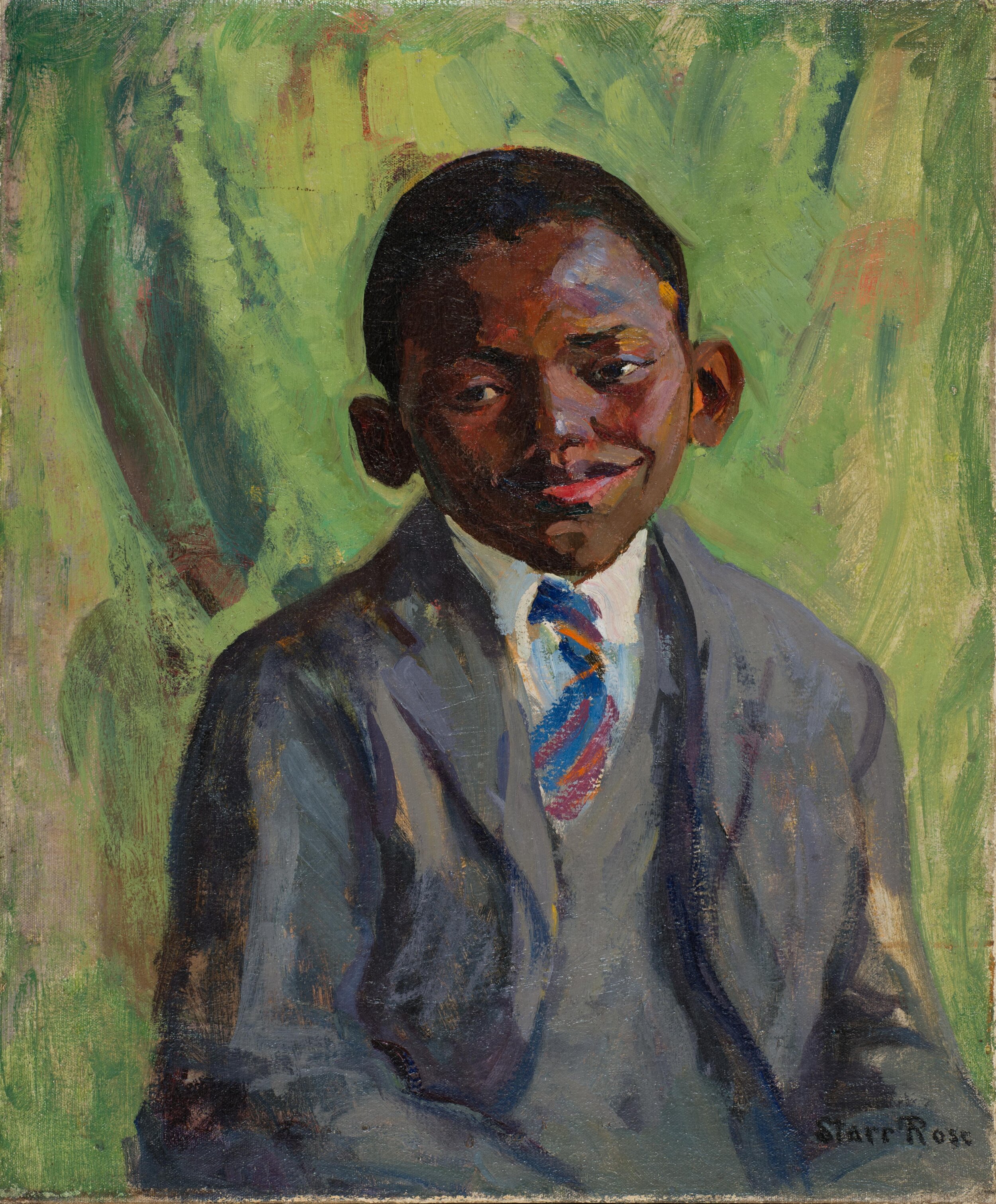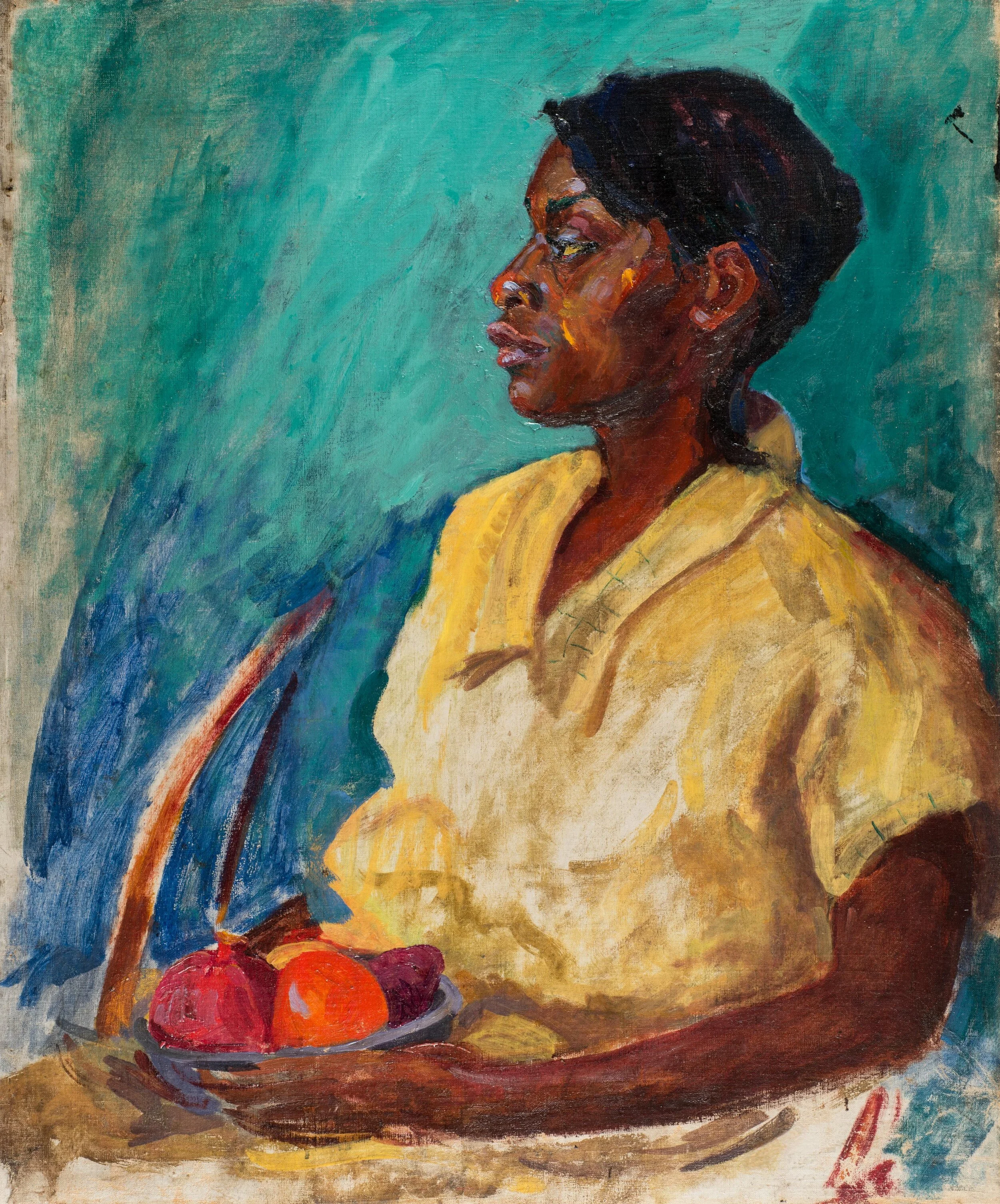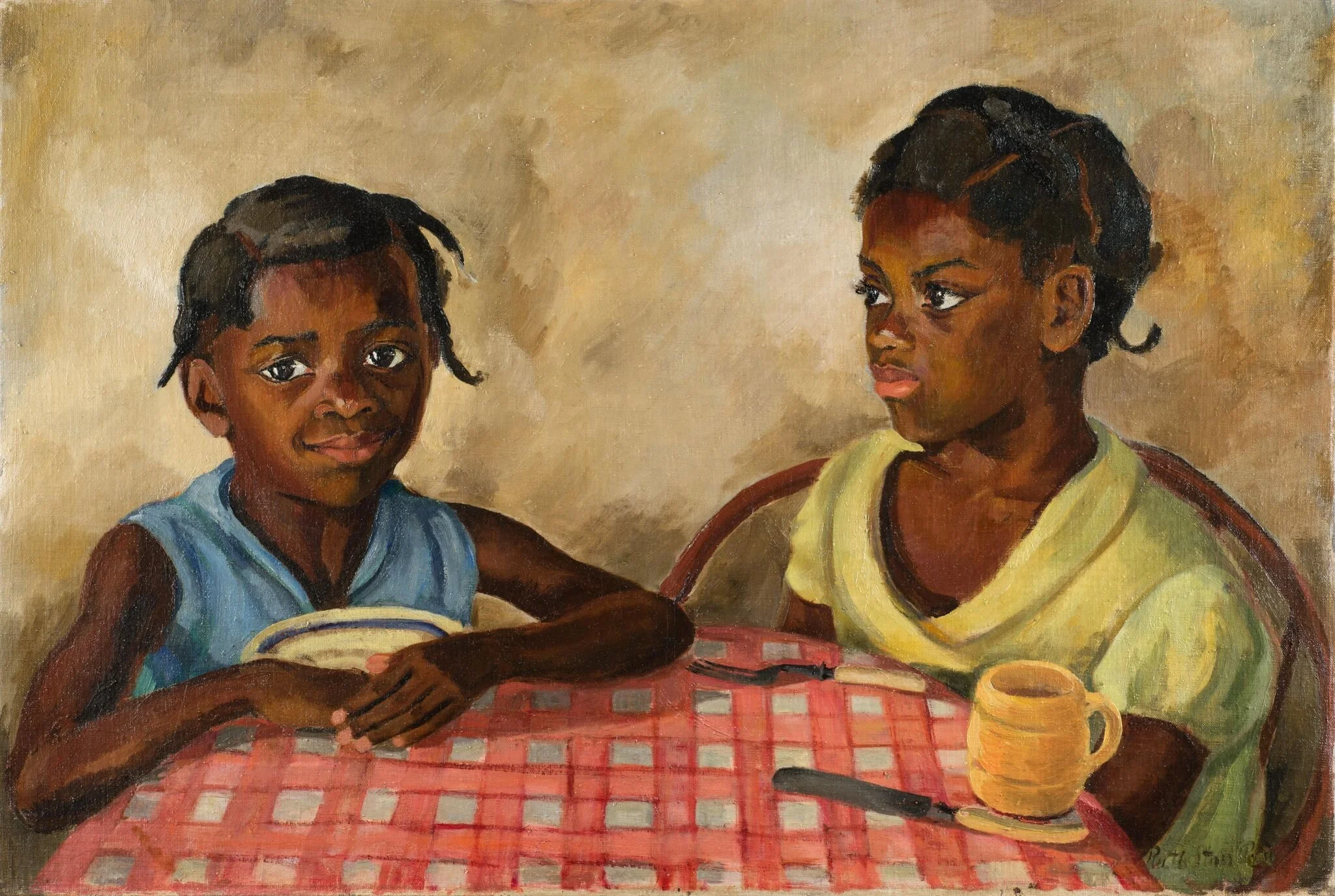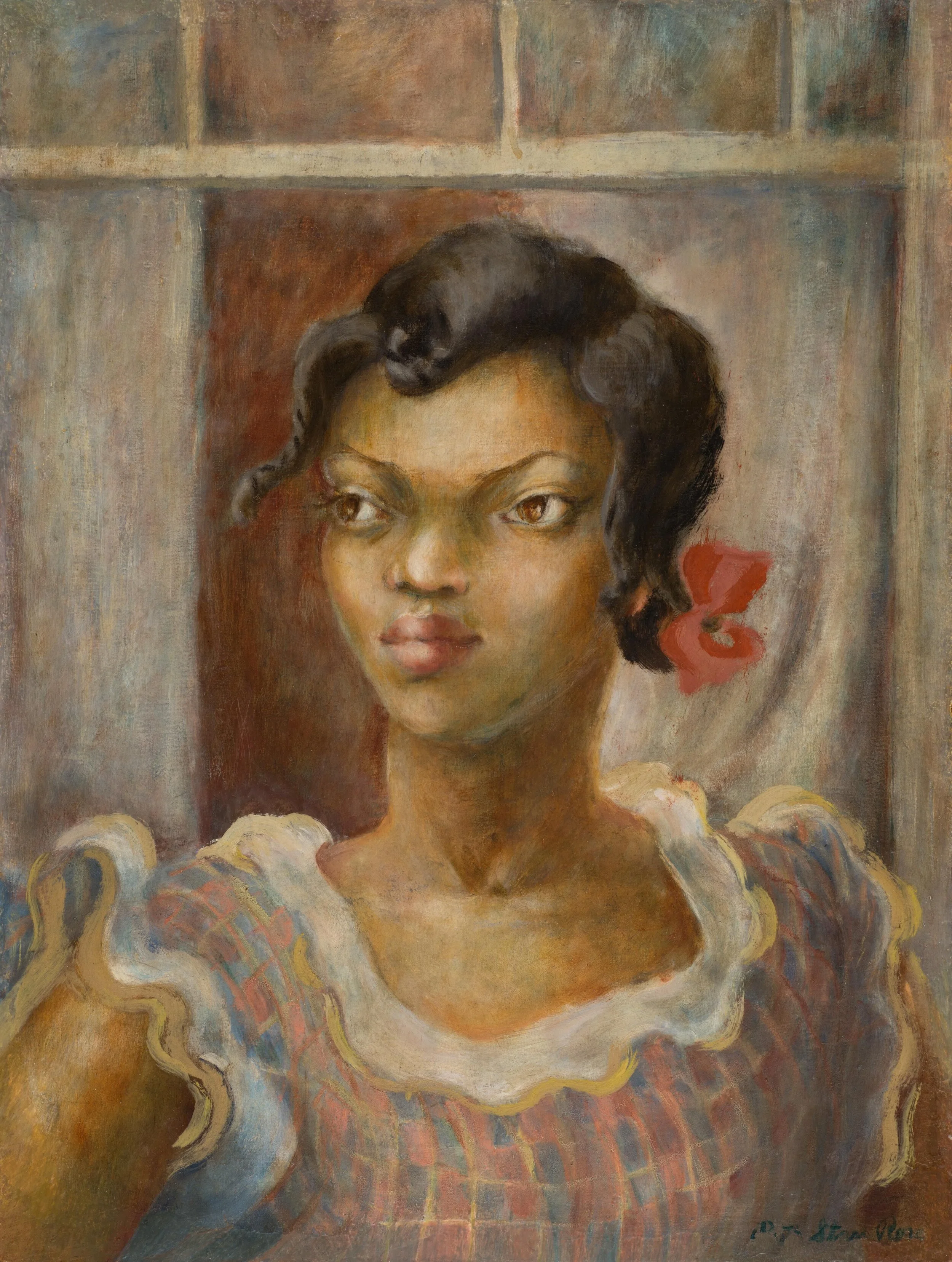The Moaney Family
Moaney Boy on Stairs, 1930, oil, 30” x 24”
George Moaney with a Horse and a Puppy, 1930, pastel, framed 33 3/4" x 39 1/2"
Moaney Boy in Church Clothes, 1933, oil on canvas, 24" x 20"
Elizabeth Moaney in Profile with a Basket of Fruit, 1930, oil on canvas, 30” x 25”
Ruth and Pauline Moaney at Breakfast, 1932, oil, 24” x 36”
Anna May Moaney, 1930, oil on Masonite, 24” x 18”
This charming tableau is a scene from local history, a story of the proud, self-assured and self-sufficient Moaney family. The Moaney family is one of the premier Founding Families of the Eastern Shore of Maryland.
These portraits exude dignity and a sense of self that was not often portrayed of Black people at the time. The popular images of Black folks at the time were vile caricatures with exaggerated features and bafoonish actions-these stereotypical images were widespread and could be seen on Riverboat Shows, Minstrel Shows, in the movies and on advertisements for a wide variety of products. All of which were demeaning and psychologically damaging to black people. Was it just in the year 2020 that the racist image of Aunt Jemima was removed from pancake mix and syrup?
People and families such as the Moaney’s, Frederick Douglass, Harriet Ross Tubman, James Pennington, William Still, and many more were the resilient and unsung heros that founded the America that we know today. They worked extremely long hours with backbreaking labor - all without proper recognition and reward. They were quiet, yet extraordinarily brave. You can notice these traits in the portraits above, where they sit tall and confident, yet still appear humble and kind. Many of these individuals were put aside as members of society. Although they were extremely socially restricted, they still had a clear sense of purpose.
